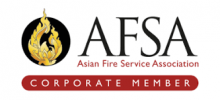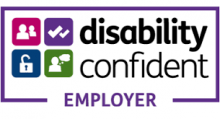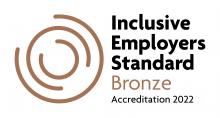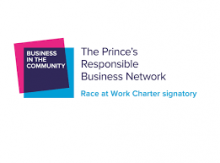Equality, Diversity and Inclusion
Within our Fire and Rescue Plan, we commit to creating a positive culture and continually improving the diversity of our workforce to reflect the community we serve.
Greater representation of diversity across our Service is important as it brings wider perspective, skills, knowledge and lived experience. Greater diversity helps us to identify improved ways to engage with our communities, with awareness of their needs, to identify and reduce risks.
It enriches our perspective, and broadens the skills and attributes required of a high performing organisation. Our Inclusion and Diversity team are working with our employees to collectively drive long-term change we need to see happen to create a workplace where people from all backgrounds want to work and build sustainable careers.






Public Sector Equality Duty - Equality Objectives
Our Public Sector Equality Duty objectives for 2022 to 2024 are as follows.
1. We will consistently demonstrate ‘due regard’ (give genuine attention and thought) to equality and diversity in our organisation and aim to be leading practitioners of workplace diversity and inclusion across Essex.
We will do this by:
- working towards having a diverse workforce that is representative of the communities we serve;
- continuing to develop an inclusive and enabling culture, where we make the most of difference and all employees have the opportunity to succeed;
- continuously improving the way we monitor information about our workforce and set benchmarks;
- improving how we encourage people to want to work for us by involving our communities in creating an inclusive recruitment process, actively encouraging applications from people who have diverse characteristics that are under-represented in our service, and checking that we are providing equal opportunities to all applicants at all stages of the recruitment process;
- reflecting and meeting national frameworks and accreditations to achieve and maintain the highest standards, including gold Inclusive Employers standard; and
- supporting diversity and inclusion outside our organisation and developing a regional and national reputation for this.
2. We will invest in a diverse workforce with the skills, knowledge and attitude needed to build a culture of diversity and inclusion.
We will do this by:
- continuing to increase awareness of inclusion and diversity at every opportunity through communication and training;
- providing training on People Impact Assessments (PIAs) across our organisation and at all relevant levels, with particular emphasis on the need to demonstrate ‘due regard’ when making decisions;
- working in partnership with our colleagues in the trade unions and staff networks to give our staff a bigger voice, identify potential barriers to inclusion in the workforce and jointly develop approaches to overcome them; and
- investing in dignity and inclusion representatives, and giving them authority to take action to bring about change and support employees.
3. We will deliver inclusive evidence-based services that show ‘due regard’ when assessing risks and behaviour in the community, to help make sure services are accessible and fair to everyone.
We will do this by:
- involving our diverse communities and giving them an active role in decision-making, focusing on ‘due regard’, dealing with inequalities and involving minority groups;
- using facts, data, information and feedback to target inequalities in order to help reduce community risk and encourage positive behaviour;
- developing a more in-depth understanding of the needs of diverse communities within Essex and, in particular, using feedback from the local community to help guide policy and practice and prevent issues that can be avoided; and
- using People Impact Assessments to make sure inclusion and diversity are included in existing work, focusing on continuous improvement, our people strategy, our community risk management plan (CRMP), and our programme for change.
4. Demonstrate community-focused leadership by working in partnership and making the most of our presence in the region to stress the importance of socio-economic factors and how they affect both employment and services.
We will do this by:
- looking at ways of encouraging local people, including those from diverse communities, to take part in decision-making within our organisation and across the region;
- taking every opportunity to consider how our decisions affect social and economic inequality as well as people who have the characteristics that are protected by law (age, disability, gender reassignment, marriage and civil partnership, pregnancy and maternity, race, religion or belief, sex and sexuality);
- using our presence across Essex and community wealth-building principles to play a defining role in creating and reinforcing local social and economic ties; and
- setting an example for organisations across our region to follow, by being a beacon of best practice and supporting diversity and inclusion.
We are proud that these objectives have received a Crystal Mark from The Plain English Campaign, meaning the information is written in the clearest possible way.
Employment Data
Under the Public Sector Equality Duty, we are required to publish our workforce information report annually.
Gender Pay Gap
Our latest report (2024) gives a snapshot of the average pay differences between men and women working across the Service as of April 2024.
This year’s report shows that, for the first time, the average pay for women is higher than for men in the Service. The median gender pay gap is now 3.28% in favour of women, and the mean gender pay gap is 8.35% in favour of women.
Gender pay gap reporting looks at the difference in average earnings across all roles and levels in the organisation. This is different from equal pay, which refers to men and women being paid equally for doing the same role. ECFRS uses a clear, structured pay scale to ensure equal pay for equal roles.
These figures reflect the current makeup of the workforce, where the Service has seen more women progress into senior roles. However, the operational workforce - especially firefighter roles - is still predominantly male. This contributes to fluctuations in the overall figures year on year.
Any gap - whether in favour of men or women - isn’t ideal. While it’s not realistic to expect the figures to ever be perfectly balanced due to the changing shape of the workforce, ECFRS remains committed to fairness, equal opportunities, and creating a diverse and inclusive Service.
Since reporting began in 2018, when the gender pay gap was 15.6%, ECFRS has made significant progress. We continue to focus on positive action in recruitment, working closely with employee networks, partners and stakeholders to understand where the Service can do more and bring about positive change.
Latest report:
Read our Gender Pay Gap Report 2024 here
Archive:
Read our Gender Pay Gap Report 2023 here
Read our Gender Pay Gap Report 2022 here
Equality Analysis
Equality analyses helps us improve the lives of our staff and the services we provide for our communities, while assessing the impact of our policies and services and reducing any adverse effects they might have.
ECFRS considers the potential impact of its policies and services in accordance with the Equality Act 2010, with regard to each of the protected characteristics, and carries out proportionate equality analyses.
For further information on specific analyses, please contact our
Inclusion & Diversity Business Partner, Nikki Hudson:
Phone: 01376 576 165
Email: nikki.hudson@essex-fire.gov.uk
Disability Confident Employer
Essex County Fire and Rescue Service is proud to have been awarded the Disability Confident Employer accreditation.
Disability Confident is a government scheme designed to encourage employers to recruit and retain disabled people and those with health conditions.The scheme supports and highlights organisations’ commitment to:
- Challenging negative attitudes towards disability
- Promoting disability equality
- Removing barriers to disabled people and those with long-term health conditions
- Ensuring that disabled people have the opportunities to fulfil their potential and realise their aspirations.
More information on Disability Confident: www.disabilityconfident.campaign.gov.uk
Stay connected
Sign up to receive news and updates from Essex County Fire and Rescue Service


